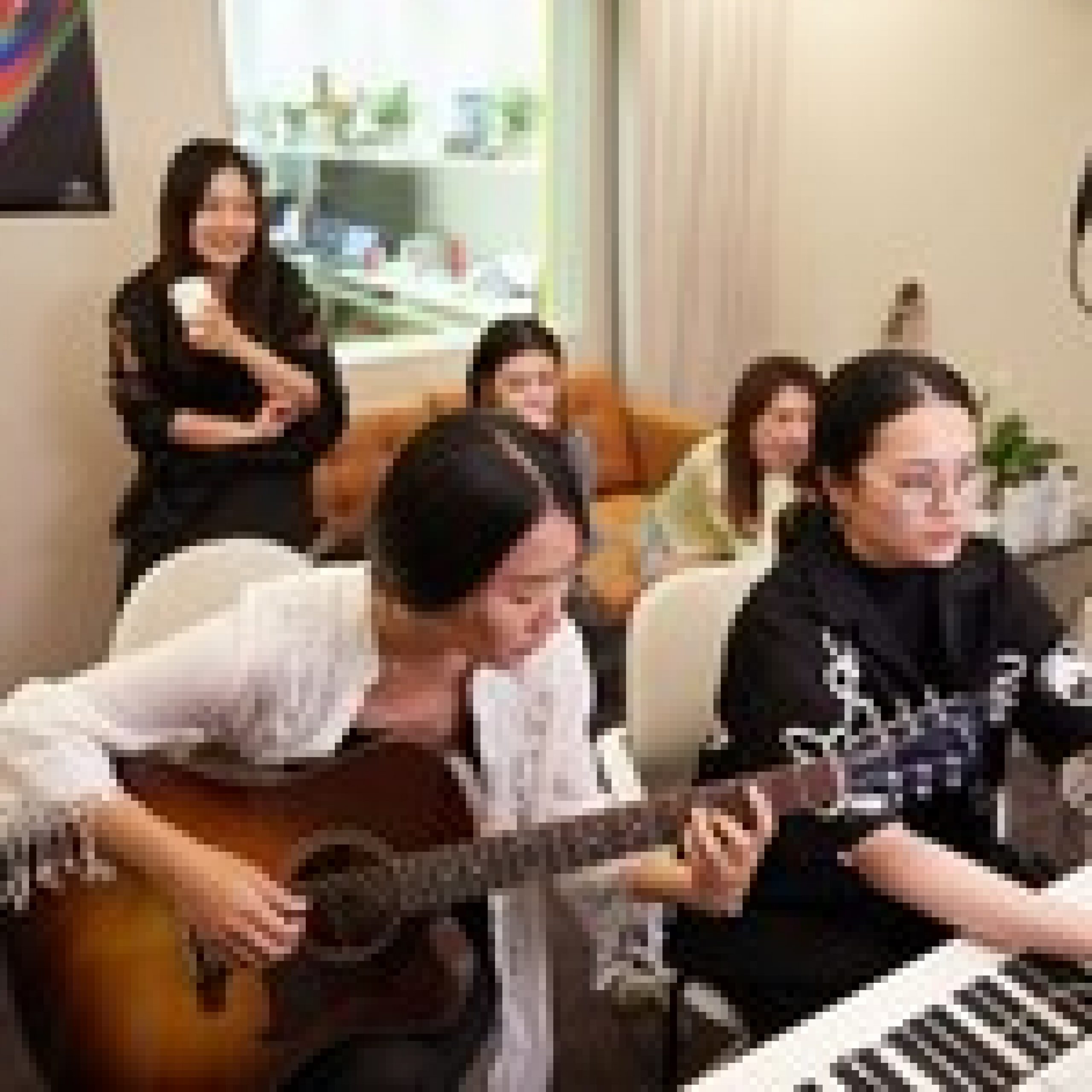Universal Music Publishing China Hosts All-Female Writing Camp with She Is The Music
June’s all-women camp marked She Is The Music’s first songwriting camp outside the U.S. and connected some of UMP China’s most promising women writers with songwriters from several other countries, including the U.S., Mexico, South Korea and Australia.
According to USC Annenberg’s Inclusion Initiative, which surveys the number of women represented on the Billboard Hot 100 Year-End Charts, only 12.6% of the songwriters and just 2.6% of the producers behind 2020’s hottest tracks were women. Stats like these are the driving force behind She Is The Music, which was founded to try to increase these numbers, both on the U.S. charts and abroad. So when UMP China reached out to She Is the Music to propose a collaboration last year, Michelle Arkuski, She Is the Music’s executive director, was all ears.
“UMP China had just signed some amazing female songwriters and producers, and they wanted to help elevate and connect them with women around the world and to encourage more girls to see themselves as music professionals,” Arkuski says.
While some of UMP China’s female writers were already established in the industry, Fang wanted to help the newer songwriters gain traction in the Chinese music market. “They are writing equally great songs,” he said. To him, all these writers needed was the right opportunity and a comfortable, inclusive environment to do their best work, and She Is The Music’s mission to create more spaces for women creatives felt like the perfect fit. “It was just a great opportunity for everyone,” Arkuski says. “We hope this Untagged camp inspires others down the road to follow suit.”
Untagged 2021 is UMP China’s second hybrid songwriting camp, with local songwriters meeting in person at UMP China’s new Beijing studio and international songwriters joining via video conference. It follows last year’s hybrid songwriting camp in partnership with Riot Games, which was held with the intent of creating promotional music for the game publisher’s League of Legends 10th world championship. That camp had songwriters join via video conference or at a studio in Shanghai.
Although both UMP China and She Is the Music hope for a fully in-person camp in the future, Arkuski says that UMP China’s “state of the art” studio made it feel like the writers joining virtually are “basically in the room with you.” At the Untagged camp, the songwriters focused on writing songs for gaming, TV and film as well as virtual idols.
A fast growing sector of the country’s entertainment economy, virtual idols are digitally constructed influencers who, just like human influencers or personalities, sing, dance, pose and interview. In recent years, major Chinese companies have begun minting their own superstars, sensing the potential of the new space, including Tencent’s idol Xingtong. “It’s not a very mature market for virtual idols yet,” says Fang. “However I think virtual idols naturally match with what we are doing with the Untagged camp. With virtual idols, they don’t need to have big-name singers and songwriters. With idols, you don’t have to know who is writing or singing the songs.”
To determine which women would be included in the camp, UMP China and She Is the Music held meetings to review applicants’ submissions. “A lot of offices worldwide would send their songwriter and producers’ resumes to us for the camp,” says Fang. Assuming the role of matchmaker, the teams listened to each applicant’s music to determine which writers and producers would pair well together. Nearly 30 songwriters took part, including Chinese writers Lona Chen, FAE and Akini Jing.
UMP China opted to include international songwriters in its camp because “we think of it as a global solution for local needs,” Fang says. This strategy mirrors that of other global music companies operating in China who have hosted other international songwriting camps, like BMG’s ongoing Soundlabs series.
Betting that Chinese music could become as lucrative as K-Pop, companies are now looking to invest resources in the country more than ever before. The Chinese music market is now the seventh largest in the world, according to IFPI’s Global Music Report in 2020.
Next for the Untagged series? Fang teases the possibility of a “rainbow camp,” highlighting the work of LGBTQ+ songwriters in China and abroad. “It will be hard to pull off,” he admitted, citing China’s discrimination toward the gay community, but he hopes it could be possible in the future. “We have a lot of great LGBT writers,” he said. “We want to show that good songs can come from anyone.”
Meanwhile, She Is the Music continues connecting women creators through virtual and in person events worldwide. With a workshop in the U.K. for emerging songwriters currently underway and plans to hold an all-female camp in Mexico, Arkuski says, “we’re really looking forward to expanding our footprint globally.”

